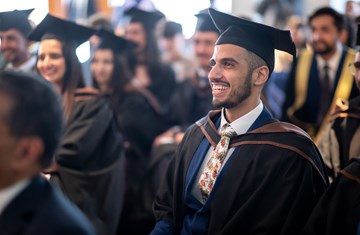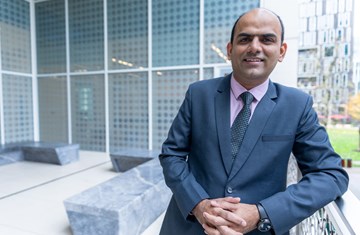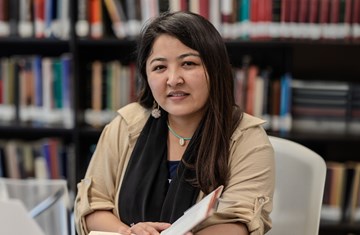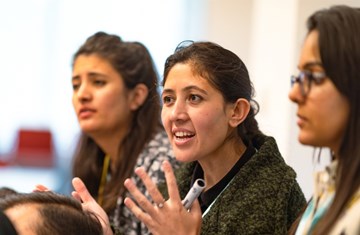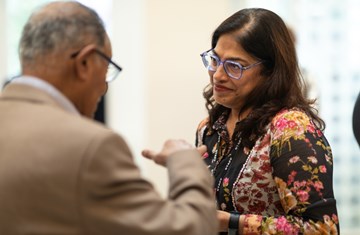GPISH Students Deliver Field Research Presentations
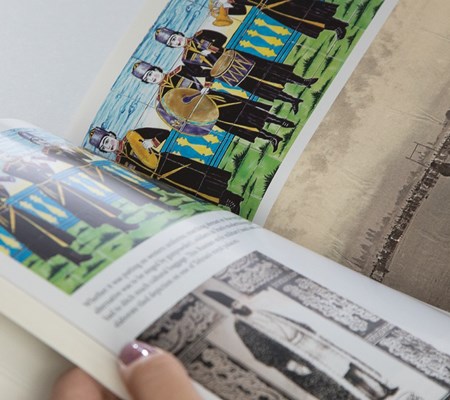
On Tuesday 24th and Friday 27th November third-year students on the Graduate Programme in Islamic Studies and Humanities (GPISH) presented their field research papers to an audience of academics, students and staff.
Although the circumstances of the COVID-19 pandemic posed a particular challenge this year, with research necessarily being largely desk-based and presentations delivered via Zoom, students successfully harnessed their skills in research and technology to develop thought-provoking projects in a diverse range of topics in the social sciences and humanities.
In their first two years, GPISH students are enrolled on a Master’s level course in Islamic studies and humanities at the Institute of Ismaili Studies (IIS) in London. The course encourages an inter-disciplinary approach to Islamic history and thought, and particular attention is given to issues of modernity that arise as Muslims seek to relate their heritage to contemporary circumstances. The programme aims to prepare students for a Master’s degree, primarily at a UK university, in their third year and the field research component is a core part of this preparation.
Topics this year reflected the broad scope of the GPISH programme, as well as its engagement with contemporary discourse, exploring issues related to identity, conflict, displacement, authority, technology, development, history, philosophy, literature and art, among other things. The presentations prompted keen interest and debate from the academics and students in the audience, including exciting ideas for expanded and new research projects in the future.
Reflecting on the field research projects, GPISH Programme Leader Dr Alex Henley said "The GPISH class of 2021 gave fascinating research presentations to a Zoom audience of IIS faculty and students, having completed their projects this summer under extraordinarily difficult circumstances. Originally planned as field research trips to various locations across four continents, these projects had to be adapted at short notice to a world without travel. The students’ resilience and skills were pushed further than any previous GPISH cohort, and all ten of them came up with imaginative solutions and managed to complete interesting and original projects that engaged seriously with issues facing Muslims in various parts of the world. Although the students could not get out into the field this summer – at least not physically – they have proven their mettle in the key skills that make a successful field researcher: creativity, adaptability, and calm under pressure."
The titles of the students' projects can be found below.
|
Student |
Project Title |
|---|---|
|
Saher Ashiq |
The Migration of Nizari Ismailis from India to Pakistan after the Partition in 1947: An Analysis |
|
Lubna bin Zayyad |
How do Khaleeji youth explore their Arab-Muslim identity through the use of visual and digital arts? |
|
Uzair Ibrahim |
Negotiating Decontextualisation, Power and Meaning: Curating Islamic Art in the United Kingdom |
|
Abdul Wahid Khan |
How do Nasir-I Khusraw's poetry and philosophy depict the relationship between humans and nature? |
|
Imran Khan |
What are the perceptions regarding knowledge based authority in Cyberspace among members of the Ismaili community in the West? (UK and USA). A case study of the Ismaili Gnosis Project |
|
Shaheera Pesnani |
A Case Study of Syrian Refugees and the Preservation of their Intangible Cultural Heritage in Berlin, Germany |
|
Nazra Nazim Ranmall |
Ismaili Identity in Tanzania: Exploring Racial Identity through Youth Narratives in Dar es Salaam, Tanzania |
|
Shafaat Saleem |
Secular policy reforms and identity reformation in the public spheres of modern Turkey: Headscarf controversy and its impact on the Turkish society |
|
Nishat Taranum |
Exploring the role of professional development centres in the capacity building of teachers in remote areas. The case student of Professional Development Centre North (PDCN) Gilgit-Baltistan |
|
Mahek Salim Virani |
What is the role of Mediation as a form of conflict resolution and transitional justice? A case study of Syria (2011-present) |

